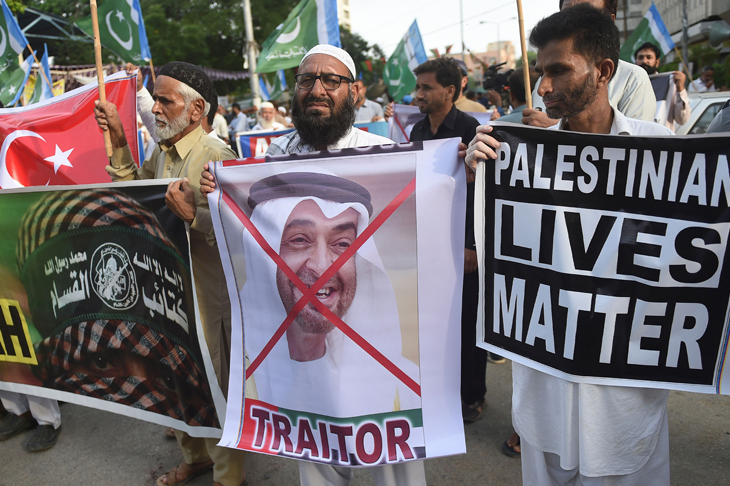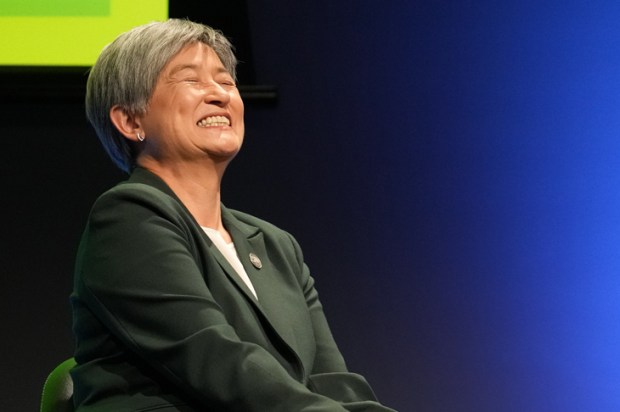On 13 August, politics in the Middle East, that most volatile of regions, transformed in what has been described as a seismic shift. A diplomatic agreement between Israel and the United Arab Emirates was announced, the first between Israel and an Arab state in a generation. This is a peace deal that normalises diplomatic relations and foreshadows further operational agreements on security, direct flights, tourism, and energy. The Washington Post declared ‘the very notion of Middle East peace had shifted under Trump’ and this is not an exaggeration. It is an historic moment.
The Middle East has come a long way since the Arab League’s infamous ‘three no’s’ Khartoum resolution against Israel after the 1967 six-day-war that declared no peace, no recognition and no negotiations. The Israeli-UAE deal marks the third Arab-Israeli peace agreement; Egypt in 1979 and Jordan in 1994.
The three leaders concluding this agreement, US President Donald Trump, Israeli PM Benjamin Netanyahu, and Crown Prince Sheikh Mohammed bin Zayed all deserve praise. They are winners – politically, diplomatically and economically.
President Trump can bank a diplomatic achievement in the Middle East vastly exceeding anything delivered by his predecessor, Barack Obama, who won a Nobel Peace Prize for essentially nothing. Even Joe Biden supported this development, saying ‘The UAE’s offer to publicly recognise the State of Israel is a welcome, brave, and badly-needed act of statesmanship’ but claiming it was built on the work of multiple administrations and omitting any mention of Donald Trump’s role.
Israeli PM Netanyahu clearly emerges as a major winner. He has again demonstrated his expertise in international diplomacy and statesmanship. Many in the Israeli left, in the Arab/Muslim world and the international community despise him, but the fact remains that during his tenure as Israel’s leader, he has broadened Israel’s diplomatic footprint and facilitated substantial economic growth.
Prince bin Zayed has positioned himself as a pace setter of reform amongst the more moderate Sunni Arab states. There is already speculation that others including Saudi, Sudan, Bahrain and Oman may follow his lead. The President of Lebanon, Michel Aoun, hinted that even his country may be open to peace talks with Israel.
Citizens of both Israel and the UAE are also winners. Both countries stand out from the failed states of the region. According to the International Monetary Fund 2019 estimates, Israel ranks 19th in the world by per capita GDP, while the UAE is 24th. Open cooperation and trade brings further commercial and cultural benefits.
There were three catalysts for this diplomatic breakthrough. Firstly, the Trump administration was keen to close a Middle East diplomatic achievement. The much touted ‘Deal of the Century’ for peace between the Israelis and the Arab Palestinians had stalled, bogged down by opposition from the Arabs, factional disputes within Israel and resistance from much of the international community. By contrast the Israel-UAE announcement has received much wider support.
Secondly, Israel has agreed to suspend extending sovereignty into Judea-Samaria (the West Bank) thus enabling the UAE to portray this as an achievement in preserving wider opportunities for Arab Palestinians to negotiate, as unlikely as that may seem under current leadership.
Thirdly, the alliance in opposition to Iran is strengthened. Moderate Arab states when assessing existential threats do not see Israel as a problem. They see Iran with its nuclear ambitions, proxy wars and funding of extremist Islamist jihadi militia. While the moderates are the winners, the Islamic extremists and the radical left are losers.
The President of the Palestinian Authority (PA), Mahmood Abbas, currently serving the 16th year of his four-year term, decried the Israel-UAE announcement as a stab in the back. Senior PA spokeswoman Dr Hanan Ashwari described the peace deal as a betrayal. In an odd twist of fate, Ashwari who opposes this peace, was awarded the 2003 Sydney Peace Prize by then NSW Premier and vehement Israel critic, Bob Carr.
The terrorists of Hamas and Islamic Jihad in Gaza have responded true to form, launching more incendiary devices on helium balloons and firing rockets into Israel. This strategy has achieved nothing in the past beyond triggering targeted retaliatory strikes from Israel.
Iran and Turkey, each governed by despots with expansionist visions, also condemned the Israel and UAE rapprochement on cue. Their worst nightmare would be Israel building alliances with the moderate Sunni Arab states.
Democrat Congresswoman Rashida Tlaib, whose main claim to fame is her foul-mouthed vow to impeach President Trump is a member of the radical ‘squad’ and identifies as a Palestinian. She also slammed the peace deal. Quelle surprise!
In Australia, the reaction has been mainly positive. On behalf of the Australian government, Foreign Minister Marise Payne welcomed the announcement. MPs representing electorates with the largest Jewish communities in Australia, Dave Sharma (Liberal, Wentworth) and Josh Burns (Labor, Macnamara) also expressed their support.
But in a bizarre public statement which could please the terrorist jihadis, the Australian National Imams Council (ANIC) opposed the Israel-UAE peace deal suggesting it ‘undermines existing negotiations’. What nonsense. Since 2014 the PA has refused to even meet with Israel for negotiations. Would ANIC advocate repudiation of the peace treaties between Israel and Egypt and Jordan? Does ANIC support the ‘Pay for Slay’ programme of the PA which incites and pays for terrorism with hundreds of millions of dollars?
Then there’s the ABC which has a long and shameful record of anti-Israel bias. One could almost imagine a soy latte fuelled creative session on how to find a negative spin on Israel resolving a peace deal with an important Arab/Muslim regional neighbour. The problem is solved by indirectly giving voice to the Islamists with this headline on ABC news website: ‘Calls made between Israel and UAE for first time, Islamic neighbours outraged’. By the last phrase, mission accomplished!
There is reason for optimism that a significant breakthrough for peace in the Middle East has occurred. It is being warmly welcomed by all except those who harbour extremist views such as the Imams Council and the ABC.
Got something to add? Join the discussion and comment below.
Get 10 issues for just $10
Subscribe to The Spectator Australia today for the next 10 magazine issues, plus full online access, for just $10.
Dr David Adler is the President of the Australian Jewish Association
You might disagree with half of it, but you’ll enjoy reading all of it. Try your first month for free, then just $2 a week for the remainder of your first year.














Comments
Don't miss out
Join the conversation with other Spectator Australia readers. Subscribe to leave a comment.
SUBSCRIBEAlready a subscriber? Log in